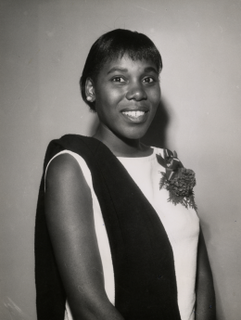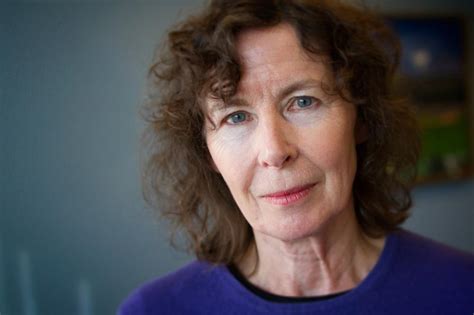A Quote by Paule Marshall
I realise that it is fashionable now to dismiss the traditional novel as something of an anachronism, but to me it is still a vital form. Not only does it allow for the kind of full-blown, richly detailed writing that I love . . . but it permits me to operate on many levels and to explore both the inner state of my characters as well as the worlds beyond them.
Related Quotes
It was only after two years' work that it occurred to me that I was a writer. I had no particular expectation that the novel would ever be published, because it was sort of a mess. It was only when I found myself writing things I didn't realise I knew that I said, 'I'm a writer now.' The novel had become an incentive to deeper thinking. That's really what writing is—an intense form of thought.
I did some more soul searching. I asked myself, "What do I want more than happiness?" and there was only one answer - the only thing that trumps happiness is love. Not the kind of love we are normally taught about, but the kind of unconditional love that is a deep inner state which doesn't depend on any person, situation or a romantic partner. That's how I define Love for No Reason: it's an inner state of love.
To me, and I'm sure for other writers, too, characters come back and they relive again, but what about those characters who only live for a page or two? Or for five pages or 10 pages. I like to think they're still out there - still living - but for me they kind of die, too. It's kind of sad. I don't think about them anymore unless I give them life again.
I love the sound of words, the feel of them, the flow of them. I love the challenge of finding just that perfect combination of words to describe a curl of the lip, a tilt of the chin, a change in the atmosphere. Done well, novel-writing can combine lyricism with practicality in a way that makes one think of grand tapestries, both functional and beautiful. Fifty years from now, I imagine I’ll still be questing after just that right combination of words.
I was a lot dumber when I was writing the novel. I felt like worse of a writer because I wrote many of the short stories in one sitting or over maybe three days, and they didn't change that much. There weren't many, many drafts. That made me feel semi-brilliant and part of a magical process. Writing the novel wasn't like that. I would come home every day from my office and say, "Well, I still really like the story, I just wish it was better written." At that point, I didn't realize I was writing a first draft. And the first draft was the hardest part.
I confess to being something of a philosophical butterfly. The world is full of so many interesting questions, and although my greatest passion is for some form of applied ethics, that leaves me with oodles of possibilities, many of which I have never had the time or opportunity to explore in great depth.
Photography is an investigation of both the outer and the inner worlds. The first experiences with the camera involve looking at the world beyond the lens, trusting the instrument will 'capture' something 'seen.' The terms shoot and take are not accidental; they represent an attitude of conquest and appropriation. Only when the photographer grows into perception and creative impulse does the term make define a condition of empathy between the external and the internal events.
In The Care and Management of Lies the wonderfully talented Winspear writes irresistibly about the First World War, both in the trenches of France and the fields of England. Her richly complex characters walk right off the page and into our imaginations, as we fight with them, farm with them, cook with them. I devoured this dazzling novel.



































